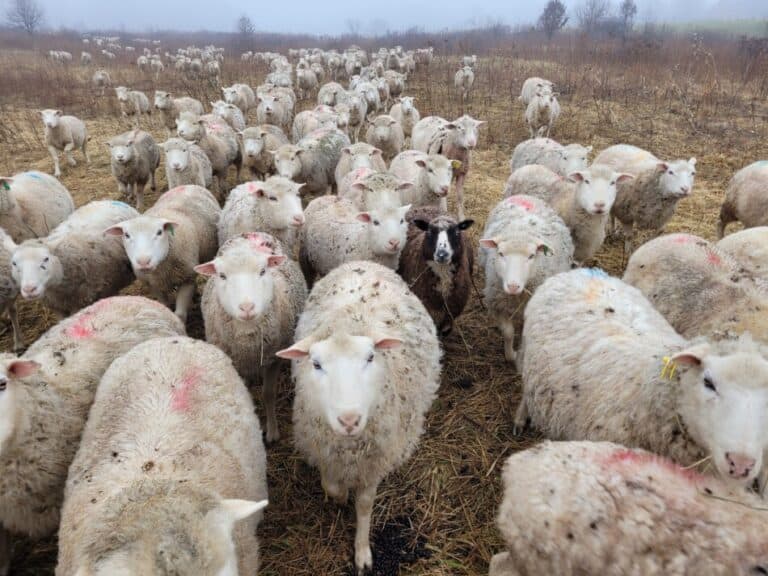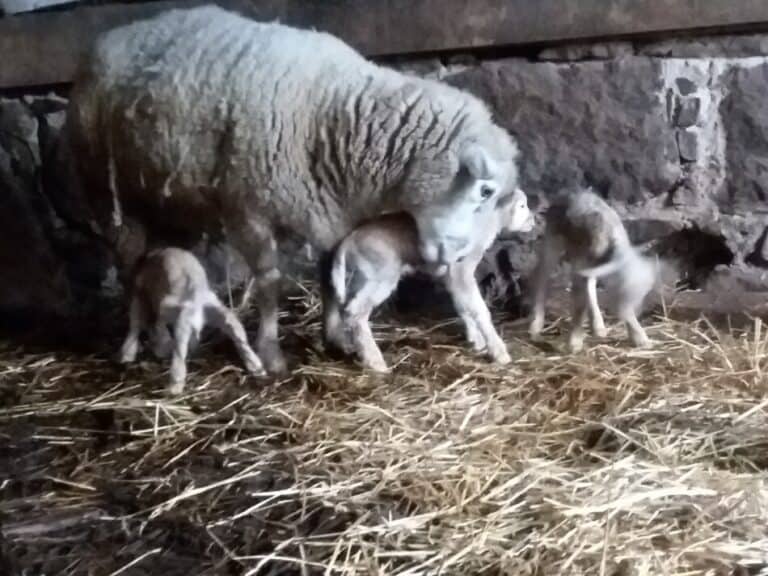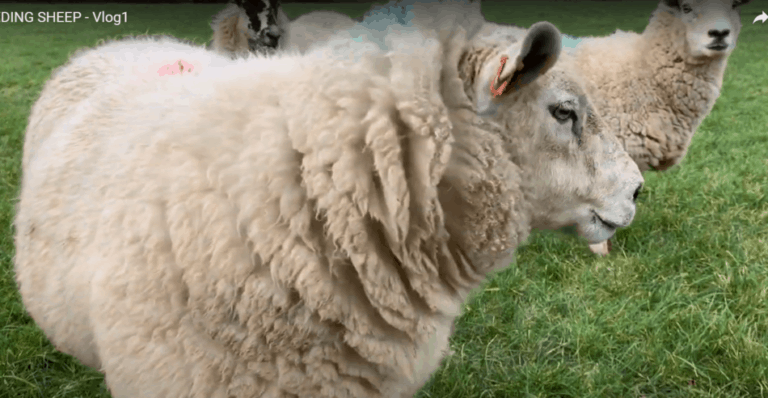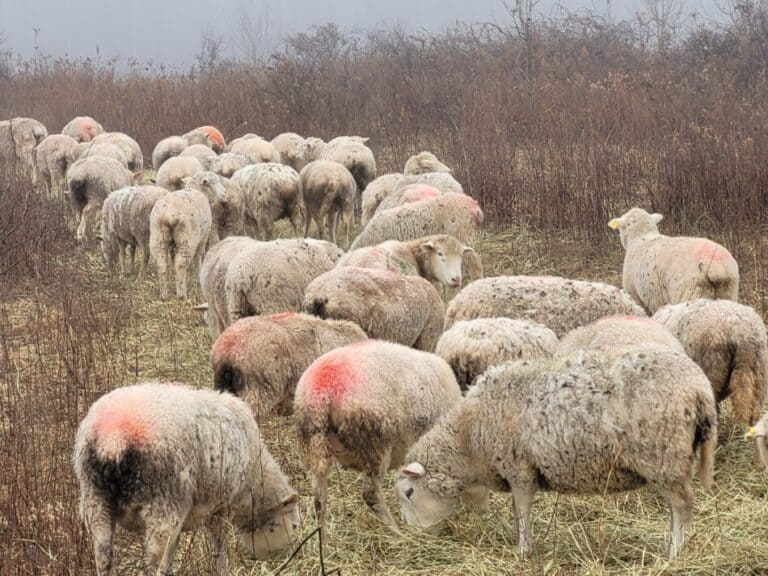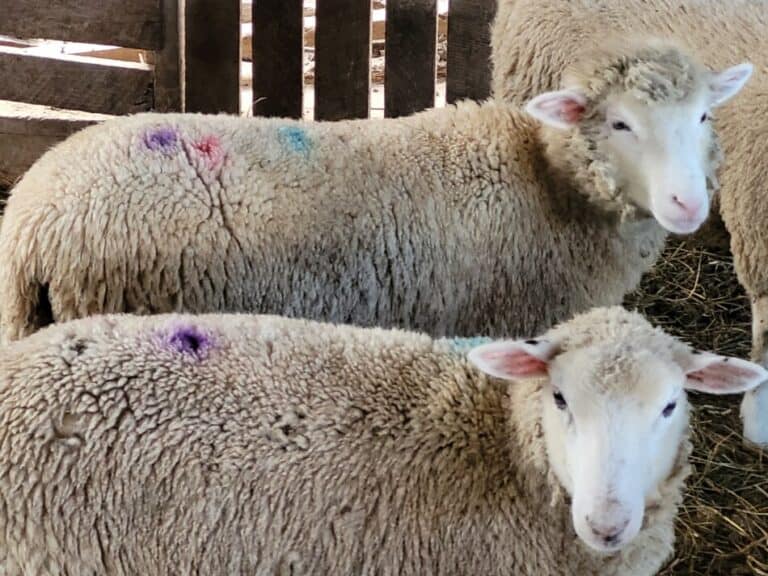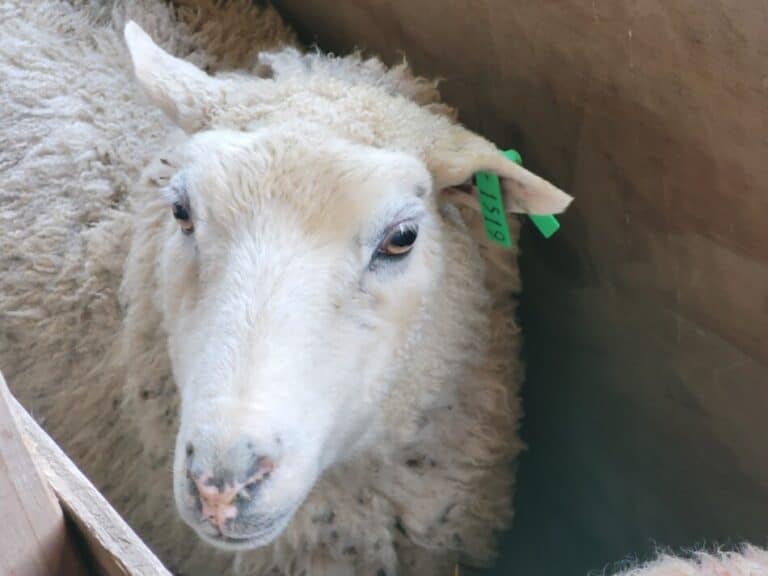Is It Okay To Inbreed Sheep?
It can be a challenge for the small flock owner to get a different ram every year or two, especially if you have kept back some of the ewe lambs to grow your flock.
In this situation, many folks consider the option of inbreeding their sheep. Is it okay to inbreed sheep or should inbreeding be strictly avoided in your flock?
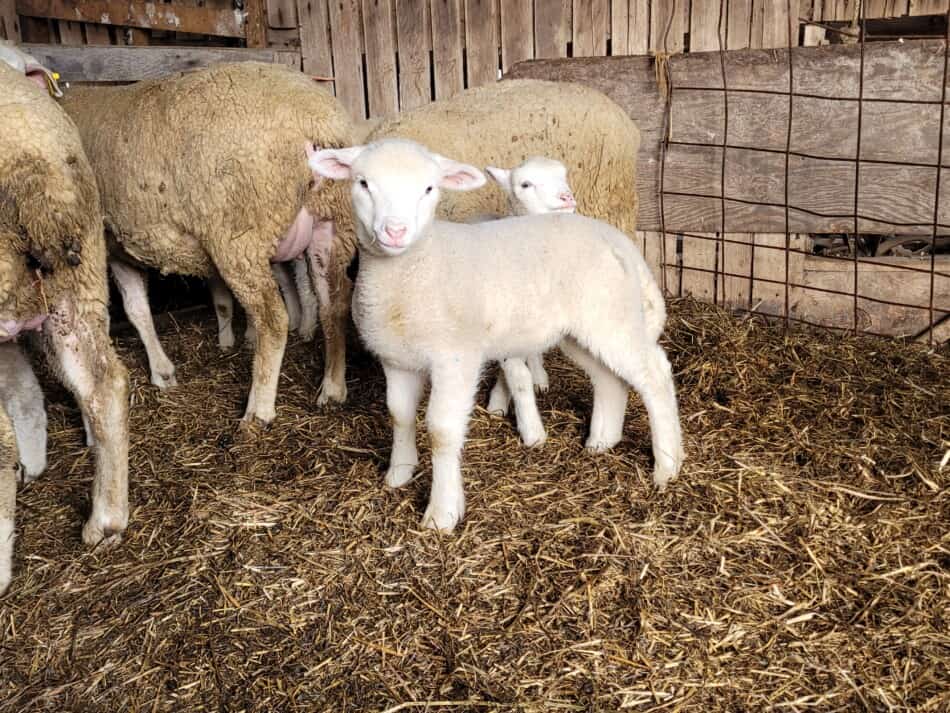
Inbreeding sheep can be used in a flock when the owner has sheep experience, high quality stock, a specific trait that is being selected for and the willingness to stick to a breeding goal for years. Inbreeding should not be used without planning and definitely not as a last minute option.
Pros and Cons Of Inbreeding Sheep is my article that goes over the good parts and the not so good parts about using inbreeding as part of your flock’s breeding plan.
What is inbreeding in sheep?
Inbreeding in sheep is breeding two individuals that are more closely related to each other than they are related to most of the other sheep in the breed.
This is commonly seen as father daughter, mother son, sibling and half sibling breeding.
In all breeds of sheep, or any other livestock, there is some overlap of genetics, (the study sited below suggests between 2 to 5%), which is what makes the breed distinctive from other breeds.
the mean inbreeding in purebred sheep populations has been estimated to generally range from 2 to 5 %
https://www.sciencedirect.com/science/article/pii/S1751731122001574
Inbreeding is when your chosen mating would make the lambs have more overlapping genetics than the average sheep of their breed.
An easy example of inbreeding is if you keep one ram for 5 years and keep back some of his daughters then breed him with those daughters, the resulting lambs are inbred (the ram is the sire and grandsire).
You can inbreed sheep
Can you inbreed sheep? Yes, you can, but the better questions to ask is should you?
Inbreeding has some good points and some not so good points and is a management tool that must be used selectively and with purpose.
There are many flocks where inbreeding is part of the breeding plan, this is generally for flocks that plan to keep back replacement stock (ram lambs or ewe lambs) rather than buy in replacements.
We keep back both ewe lambs and ram lambs which will result in inbreeding to some extent, since the lambs all came from the same pool of parent stock.
Granted, we run multiple rams and have a good number of ewes, but even so, there will be some inbreeding involved.
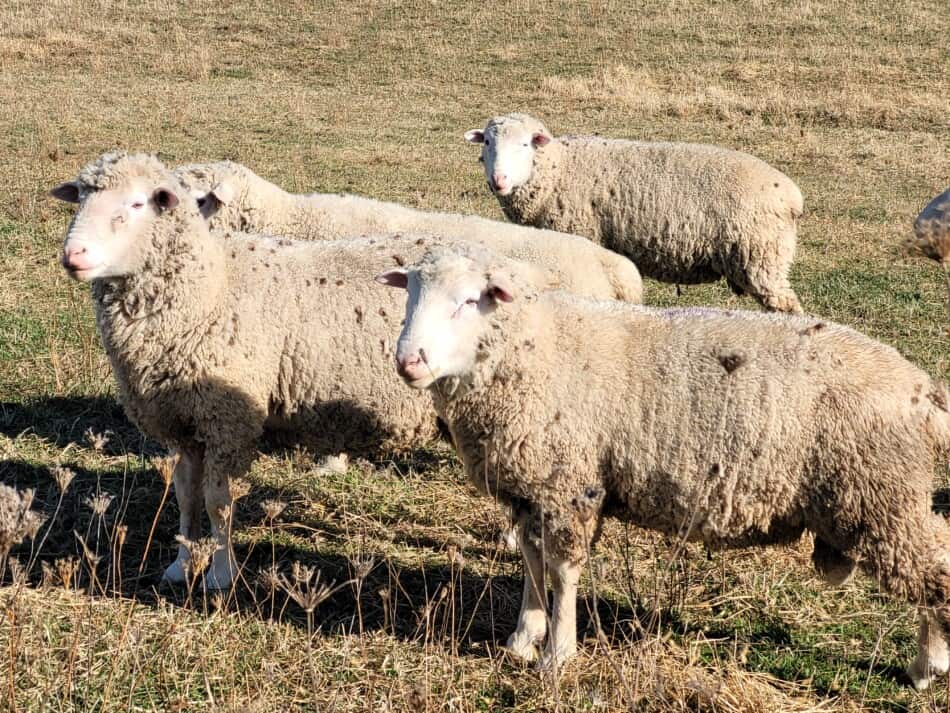
Reasons to consider inbreeding sheep
There are a few times when you could consider planned inbreeding your sheep. Here are some of the instances that I can think of, you, as your flock’s manager, will have your own.
Is It Okay To Inbreed Sheep? is my article that helps you decide if inbreeding is right for your flock’s breeding plan.
Reasons to consider planned inbreeding:
- you have a few years experience with sheep
- you like what you are seeing in your flock
- there is a specific trait you want to increase in your flock
- you have an all star ram lamb that is exactly what you are looking for in a breeding ram
- you have some ewe lambs that are looking super
- limited genetics available of your chosen breed
You have experience with sheep
The first requirement for intelligent use of inbreeding is experience with sheep. If you are new to sheep, to be blunt, you don’t have it. You need a few years to learn and develop your “eye”.
Give yourself some time, hang out with folks who have more experience with sheep than you (and you like their sheep!) and it will come.
I know it’s hard to wait, but you’ll be amazed at how much better you are at really seeing your sheep with just a few years experience. Wait a few years, then reconsider inbreeding as a management tool.
You like what you are seeing in the flock
You are producing great lambs and the ewes are doing well for you, repeatedly. This means you have figured out your feeding plan and have sheep that seem to suit both you and your farm.
Inbreeding will intensify the traits of what you have. That means you need to have traits you like to aim towards with your breeding plan.
Starting with sheep that are close to what you want to end up with makes this a ton easier.
If your sheep are very different from the sheep you want to have, shifting genetics by continued selective breeding is doable, but it will take quite a bit of time.
It will be much easier to start with sheep that are close to your end goal and refine.
You want to increase a specific trait
If you have mostly what you like in your flock and you want to increase a certain aspect of your sheep, like a taller sheep, you can select the ram lambs that when raised the same as the rest of his peers is taller.
The group you are selecting from must be raised in the same way to show an actual genetic difference. If, for instance, one lamb is raised on grain and one lamb is raised without grain, the results are skewed.
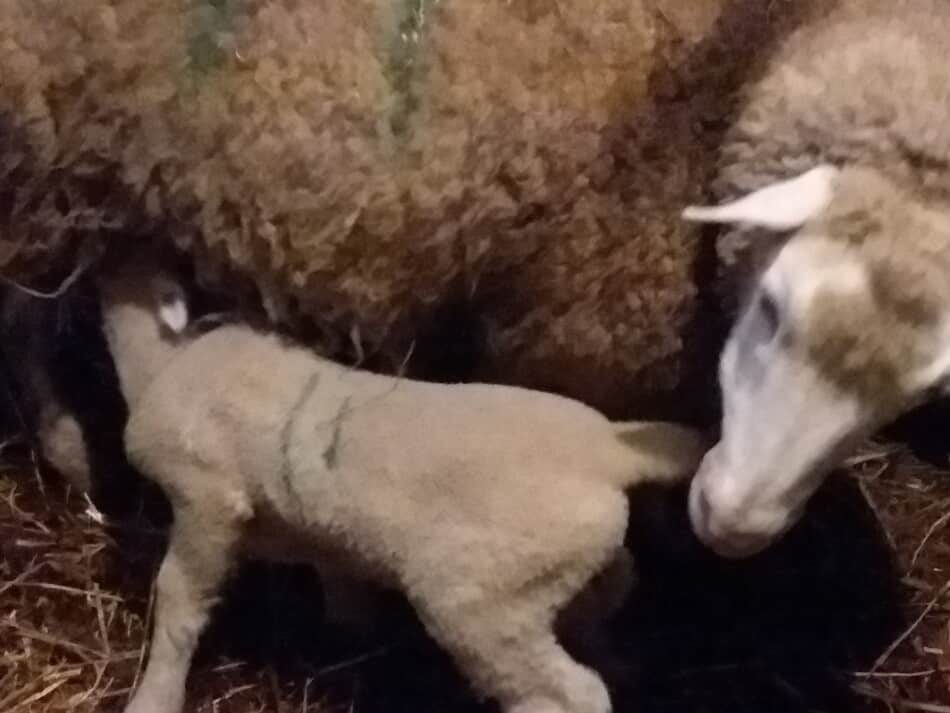
You have an all star ram lamb
If you have an all star ram lamb, one that is truly everything you are looking for when you select a breeding ram this would be a time to consider inbreeding.
Be choosy here, no single choice will direct your flock more so than ram choice. If he is superior, consider using him, if he is not, pass and see what you can get next year.
Can You Breed Closely Related Sheep? is my article that look into the option of using closely related sheep for breeding so you can decide if it is the best option for your flock.
You have some great ewe lambs
This is somewhat related to the all star ram lamb section, you have some wonderful ewe lambs in your flock, this means that you are doing something right!
Now, what if you could tweak your breeding plan to try to get all of your ewe lambs to look like those great ones? This could be accomplished with careful use of inbreeding.
Since all of your ewe lambs do not look ideal to you, you have some selections to make to get your flock genetics all headed in the same direction.
Your breed has severely limited genetics
Some breeds have very limited genetics, especially if you are one of a very few who has that specific breed in your region.
If this is the case, you can either inbreed or cross, if you can not get stock from another flock. If you are trying to keep your flock genetics purebred, then your option is inbreeding.
Reasons to not inbreed sheep
Reasons to not inbreed:
- you don’t feel like getting another ram
- you have a slow growing ram lamb that you could not sell
- you are new to sheep
- you are okay with whatever
If you find your reason for using inbreeding to be listed above, please get another ram rather than continue to inbreed for these reasons.
Nothing listed above will give you a high likelihood of good results and will not improve the health or performance of your flock, either, so both you and the sheep will be poorer off for it.
Why? Inbreeding tends to result in something called inbreeding depression, meaning you get poorer growth, as just one example, from inbred animals.
If you are not selective with using inbreeding, you can end up with an accumulation of the negative traits without getting the positive results you were hoping for so overall your flock is worse off.
If your reasons for inbreeding are on this list what is the best way forward? Getting a different ram in the flock is the easiest way to work away from inbreeding, try that first.
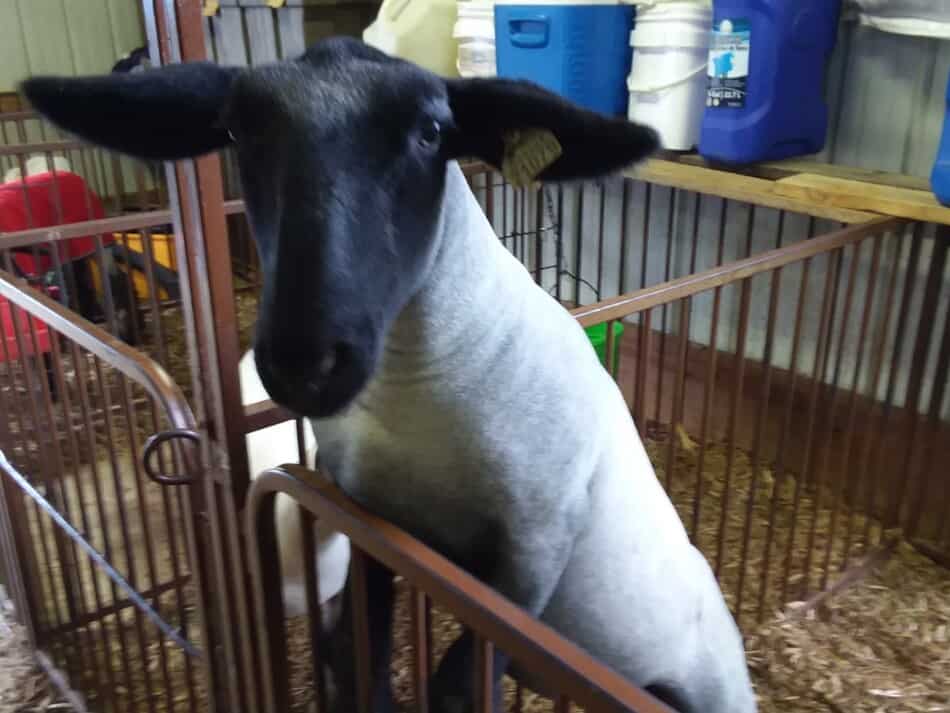
Many flock owners avoid inbreeding
In other flocks, inbreeding is strictly avoided. In flocks where inbreeding is avoided, the plan is to get the most advantage from hybrid vigor, which comes from cross breeding.
The main concern for this flock would be fast growing lambs and the plan would be to sell all of the lamb crop and buy in replacements as needed.
If you are willing to sell all of the lambs and buy in your replacements as needed, taking advantage of hybrid vigor will give you faster growing, more vigorous lambs than lambs that are inbred.
Inbreeding sheep should be planned
Inbreeding is a powerful tool that must be used with care and definitely with planning!
There are consequences to inbreeding, both good and not so good, making this a move that is not to be undertaken lightly or worse yet accidentally or through negligence.
A well thought out plan for your flock is mandatory to help you work through the journey of successfully inbreeding your flock.
How Do You Keep Sheep From Inbreeding? is my article that gives you tips to reduce the likelihood of inbreeding in your flock.
How can you avoid inbreeding your sheep?
To completely avoid inbreeding your sheep, you can choose to use a ram that is a different breed from your ewes. A common choice would be using a maternal type ewe flock and a meat type ram.
For instance, if you have a flock of Dorset ewes (a popular white faced, maternal breed), you could use a Suffolk (black faced meat breed) ram.
With this cross, the face color is not important, it’s simply an easy way to see that the sheep are different breeds. The important part is that they are completely different breeds, so the lambs will not be inbred.
This breeding combination would give you a vigorous, fast growing lamb that would get the advantages of both parent breeds and minimize the disadvantages of the parent breeds.
The upside here is obvious, fast growing cross bred lambs. Crossbreeding also tends to dilute or even wipe out any of the negatives from either of the parent breeds.
The downside here is most folks would not want to keep replacement ewe lambs from a terminal (meat only) sire so you would have to purchase replacement ewe lambs.
You could take your chances with the crossbred lambs as replacements, which may be good or bad, you don’t know until you try and see how they would work for your situation.
Resources:
Inbreeding trends and genetic diversity in purebred sheep populations in Science Direct, August 2022
